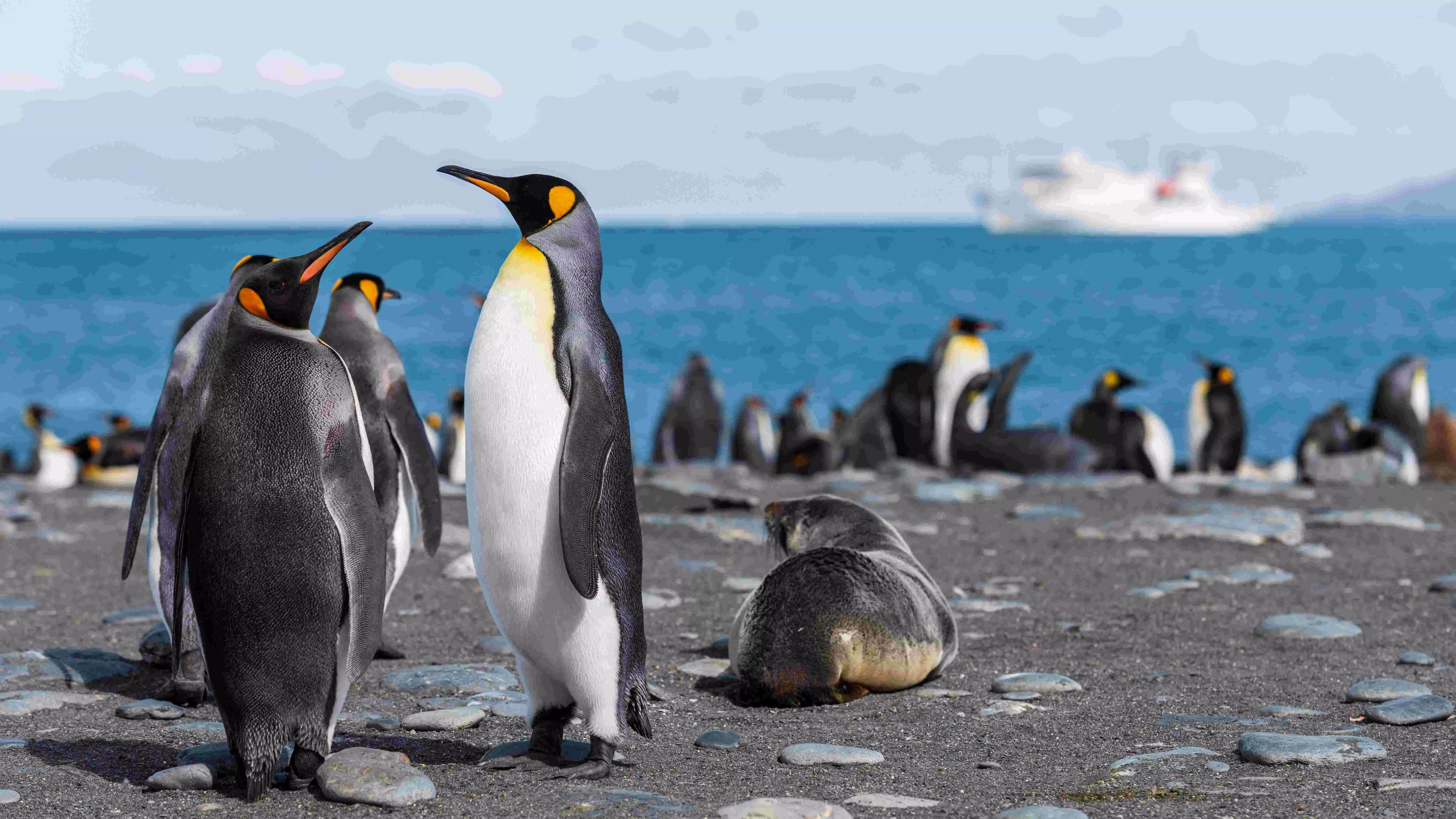Penguins in peril
Owing to rapid melting of ice around the poles and certain other factors, the safety and existence of penguins stand threatened — further destabilising the ecology, economy and ecotourism

According to BBC and other media reports, Peter Fretwell from the British Antarctic Survey (BAS) and his colleagues had been tracking five penguin colonies with the use of the EU’s Sentinel-2 satellites. They reported the dying of the penguin young in the west of the continent, at the Bellingshausen Sea. The scientists feared that four of the five colonies had failed to breed, while the northern site, at Rothschild Island, seemed to have succeeded to some extent.
With the warming of the Southern Hemisphere, scientists warn of the danger of 90 per cent of these penguins going extinct by the end of the century if global warming continues unabated. Since 2016, the area of ice in the Antarctic has recorded new lows. Scientists predict that the 2023 season could be worse. Emperor penguins have already been marked as near threatened by the International Union for Conservation of Nature (IUCN). Besides global warming, they are also threatened by hunting, overfishing, or the loss of habitat. It’s even more alarming in the Arctic. Here, the sea ice has been steadily declining, yet scientific studies in the north polar regions have found that the sea ice could re-form if global warming was reversed.
So, why are penguins important in the larger scheme of things? The recent news of 10,000 young emperor penguin chicks dying in the Antarctic as the ground beneath their feet literally melted throws light yet again on how real and extensive global warming is. The young penguin chicks had not yet developed the waterproof coats required to swim in the ocean and were feared to have drowned or frozen to death. Emperor penguins need sea ice for their breeding cycle and a stable platform to raise their young. Pablo Garcia Borboroglu, an Argentinian biologist renowned for his conservation work with penguins, wrote in the Smithsonian as early as 2014 about the important role penguins play in the ecosystem. He talked about how penguins carry nutrients between land and sea and how burrowing species modify the landscape. These elegant creatures are also huge draws for eco-tourism and help regional economies. Penguins hunt fish and squid, which in turn serve as food for predators like leopard seals, seabirds, foxes, and leopards.
Borboroglu was awarded the 2023 Indianapolis Prize for his conservation work with penguins around the world. According to media reports, Borboroglu began his conservation efforts by setting up a rehabilitation centre in Patagonia to protect penguins from oil spills. Nearly 40,000 penguins die each year due to oil spills. They also faced other threats from plastic pollution, overfishing, and climate change. In the last three decades, he has helped protect a population of Megellanic penguins in their marine habitat in Argentina and run conservation education programmes across Latin America. His work brought media attention and pushed back the oil tanker lanes further offshore, which in turn brought the penguin deaths down to 20 a year from the earlier 40,000 a year. In his Smithsonian article, Borboroglu states that penguin populations reflect the health of the oceans, act as sentinels, and provide important information about changing ecosystems, so we cannot afford to lose any more of these majestic birds. In other conservation efforts, the Australian government recently announced that it was looking at expanding the Macquarie Island marine park’s borders so that fishing and mining could be limited. This marine park is not only home to royal and rockhopper penguins but also to seals, albatross, and other aquatic wildlife. The UNESCO World Heritage Park has limited the number of people living on the island to 40, mostly those working on conservation efforts. Some four million penguins visit this island, along with seals and seabirds.
These beautiful and defenceless creatures, which breed on land and feed off the ocean, are helpless prey to not only predators but also human elements like overfishing and oil spills. They were even poached for their eggs and hunted for penguin oil. Whatever efforts conservationists are making to reverse these threats to the various species of penguins in the world, it’s obviously not enough. Of the 18 species of penguins today, the IUCN has listed five species as endangered, four as vulnerable, and two as near threatened. Only seven of the various species are of low concern.
Views expressed are personal




